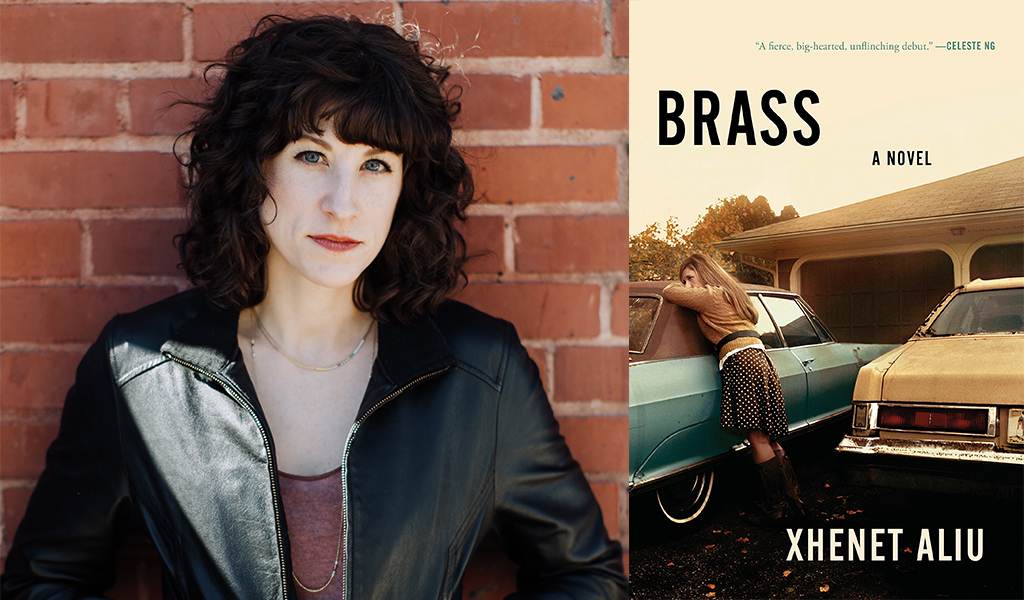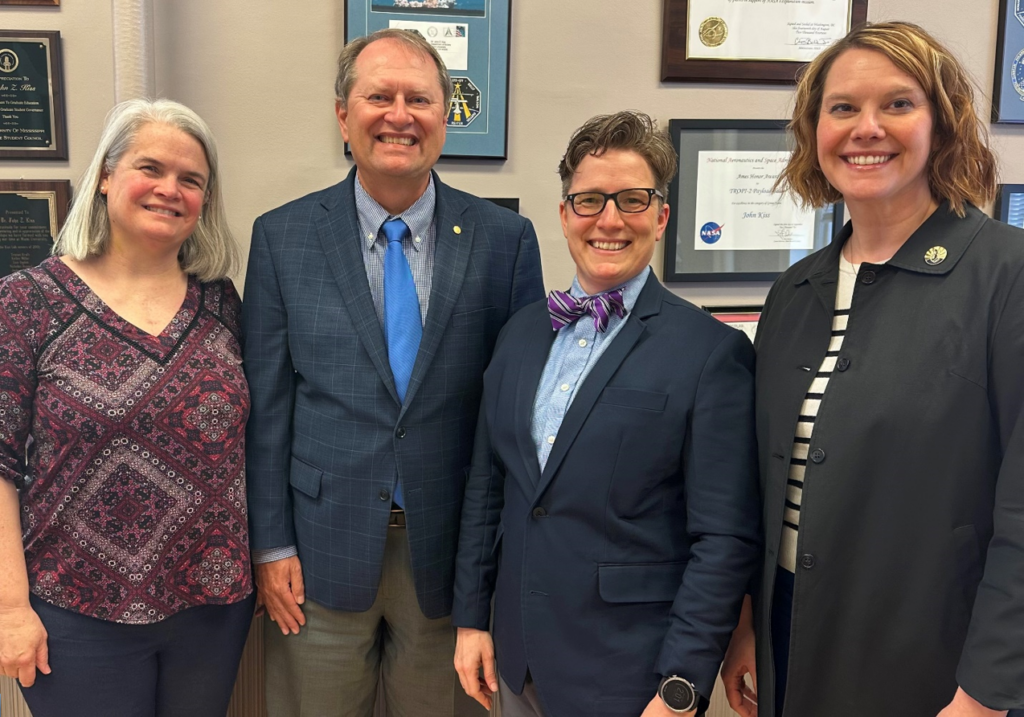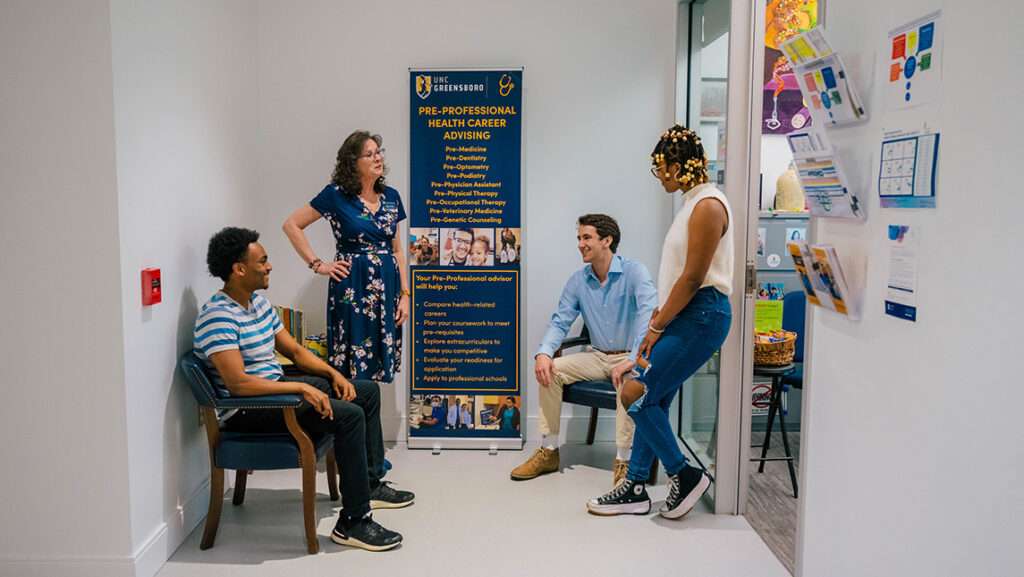When Xhenet Aliu, a UNC Greensboro professor of creative writing, published her 2018 novel “Brass,” it quickly garnered attention in the New York Times, New Yorker, O: The Oprah Magazine, and more. She won the Georgia Author of the Year prize in the “first novel” category. Bestselling authors like Celeste Ng (“Little Fires Everywhere”) decorated the cover with words of praise.
Yet her most recent acclaim may be the sweetest … and most surprising – well, surprising to Aliu at least. In May 2020, it was announced that she had won the coveted Townsend Prize for Fiction. The award is shared by past winners like Alice Walker (“The Color Purple”), Kathryn Stockett (“The Help”), and Ha Jin (“The Bridegroom: Stories”).
“It sounds like a typical Oscar’s acceptance speech, but I really, really, really, did not expect to win that one,” said Aliu. “I was up against some fantastic writers.”
Here, Xhenet Aliu (it’s pronounced JUH-net Ah-lee-OO) discusses the the process of publishing her debut novel, the story’s ties to her own life, and why she’s happy to have found a literary home at UNCG.
On the line between fact and fiction
When you compare Aliu’s personal biography to the synopsis of “Brass,” you’ll notice a lot of similarities. The story is set in her hometown of Waterbury, Connecticut, a city of working-class immigrants left crippled by the collapsed brass industry. A main character, Luljeta, shares the same ethnic background as her author; they’re both daughters of an Albanian father and a Lithuanian-American mother.
That being said, Aliu is clear: “The experiences in this book are complete fiction.”
The story follows a mother and daughter. Elsie, while waitressing at the Betsy Ross Diner, falls in love with an Albanian line cook, Bashkim, who has a hidden past. Seventeen years later, their daughter, Luljeta, searches for this mysterious father while trying to find her place in the world – a place far away from Waterbury.
The characters are gritty, world-weary, sometimes crude. Money, or the lack of it, is constantly top-of-mind.
The language is what makes “Brass” truly sparkle. The voice permeating its pages is not the traditional “literary voice” one might expect in prize-winning works of literary fiction. That’s because such a voice doesn’t reflect the world Aliu knew.
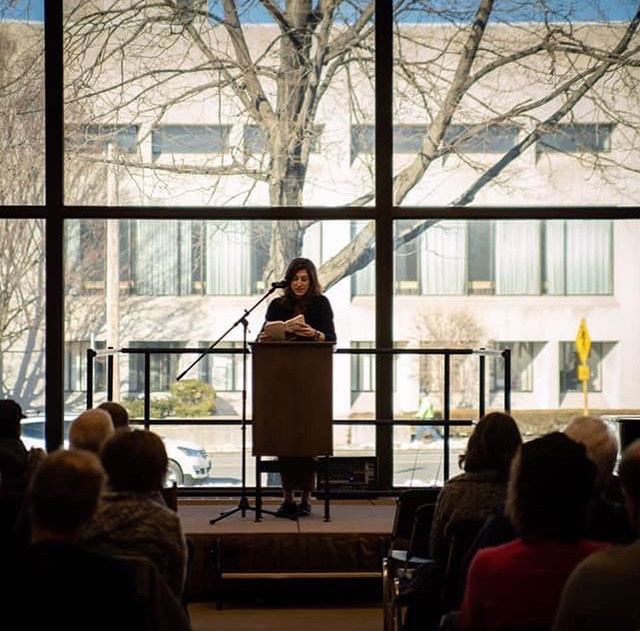
“I grew up in a working-class city,” she said. “I grew up with people who didn’t complete high school. Almost nobody I knew had gone to college. Yet the experiences they’ve lived and their emotional lives are as rich as anybody else’s. They just don’t get the same time on the page.”
Her hope, she said, was to use the language of the world familiar to her and make it transcend place – so that even those unacquainted with experiences of low-income Eastern European immigrants can empathize with the characters, the experiences.
On celebrating women
Though the plot follows Luljeta searching for her father, at its heart, the novel is about the complicated bond between mother and daughter. Female characters dominate the pages.
“Women ruled my world,” said Aliu. “My mother was an extraordinarily strong woman. She dropped out of high school and was on her own with two kids. Later she also helped raise my stepfather’s four kids as well.”
Drawing again from her own experiences, Aliu wanted to celebrate women, especially those who haven’t taken the traditional path. Some of the novel’s funniest lines come from the women who work in a Waterbury factory – a tribe of women who use raunchy jokes to get through their days. All of the female characters are equally textured.
“I wanted to honor women who, when you see them in the grocery store, they may look tired; they may snap at their kid,” she said. “But I guarantee they have stories of strength and resilience.”
On her journey to publication – and to UNCG
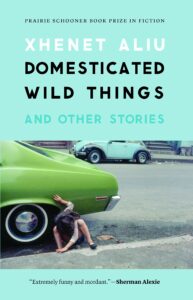
In May 2019, Aliu joined the faculty of UNCG’s creative writing program, one of the oldest and most prestigious of its kind. Like many writers, her journey has been filled with twists and turns. After graduating with her MFA in Fiction, Aliu worked as a private investigator for the financial industry. Later, she became an academic librarian at Piedmont College in Georgia, where she published “Domesticated Wild Things,” a collection of short stories.
Upon the publication of “Brass,” Aliu decided to apply to faculty positions. UNCG was at the top of her list.
“UNCG is the type of organization I want to be working for,” she said. “It’s public. It serves a lot of first-generation college students. I am also a first-generation college student and went to a very similar institution myself. I am not behind the idea of higher education being a luxury good.”
While Aliu is now happily serving on the faculty with a successful novel behind her, the path to publication was far from easy. She had to learn how to write a novel after years focused on short stories. The drafting-revising-scrapping-and-re-revising process took four years. And then, there’s always criticism.
“I thought the process of publishing a book was going to be pure glee, like ‘I did it! I made it!'” she said. “It was actually an overwhelmingly vulnerable, awkward, and strange time. I didn’t sleep for months.”
Aliu was nervous, at first, about not selling enough copies. Her agent assured her, however, that publishers were interested in “Brass” for its ability to win prizes, which it undoubtedly has.
“I felt very reassured to know that there is value to literary work that isn’t going to necessarily sell a million copies.”
Her advice to aspiring writers
“Be aware that you’re probably not going to make a living doing this, even if you sell a book,” Aliu said. She knows firsthand the importance of preparing students in the MFA Writing program for a job market outside of academia.
“I encourage my students to find work that leaves you with time and intellectual reserves to write, because that’s going to be the thing that opens doors for you.”
Still, she doesn’t mean to be discouraging. She emphasizes that you don’t have to be a genius to be a successful writer, but you do have to be driven and curious. And you have to work.
“Nothing is going to happen without a routine practice.”
So what’s next for Aliu? She’s working on both a second short story collection and a draft of her next novel. While the novel is very different from “Brass,” it still draws from her Albanian-American roots. And following her own advice, she has a strict schedule with a goal of producing 1,000 words per day.
“As a writer, being stuck at home during the pandemic means I have no excuse not to write,” she said.
Story by Elizabeth Keri
Photography provided by Xhenet Aliu
